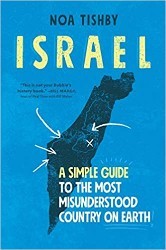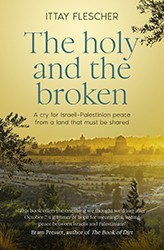Asking Holocaust scholars to analyze and interpret the political realities of the conflict between Israel and the Palestinians was a brilliant concept, but Anguished Hope works on some levels and fails on others. The conflict with the Palestinians has transformed Israel’s Jews, the quintessential victims following the Holocaust, and put the country in the role of vanquisher. In the eyes of many people around the world, David has now become Goliath. It is also undeniable that the Arab world asserts that Israel uses the Holocaust as an excuse to oppress the Palestinians.
Set up as a dialogue between the writers and the editors, the book poses questions and develops answers about critical ethical issues that can and should be dealt with in a post- Holocaust world.
Conspicuously absent from the book is a contribution from the world center of Holocaust studies in Israel. The book records none of the thinking of Israel’s Holocaust scholars. The scholars who contributed are from modest Holocaust study programs like Montgomery College, Alverno College, Whitman College, Keene College, and the Hebrew Studies coordinator at the University of Wisconsin in Milwaukee. Included also is a scholar from England, one from Emory, and one from Germany. Rather than being Holocaust scholars, most of those offering their opinions in this book are teachers of Holocaust with an expertise in another field, such as film or literature or theology.
The book is insightful. If only the Israeli dimension had been included, not only would the idea have been great but the book would have been great as well.





